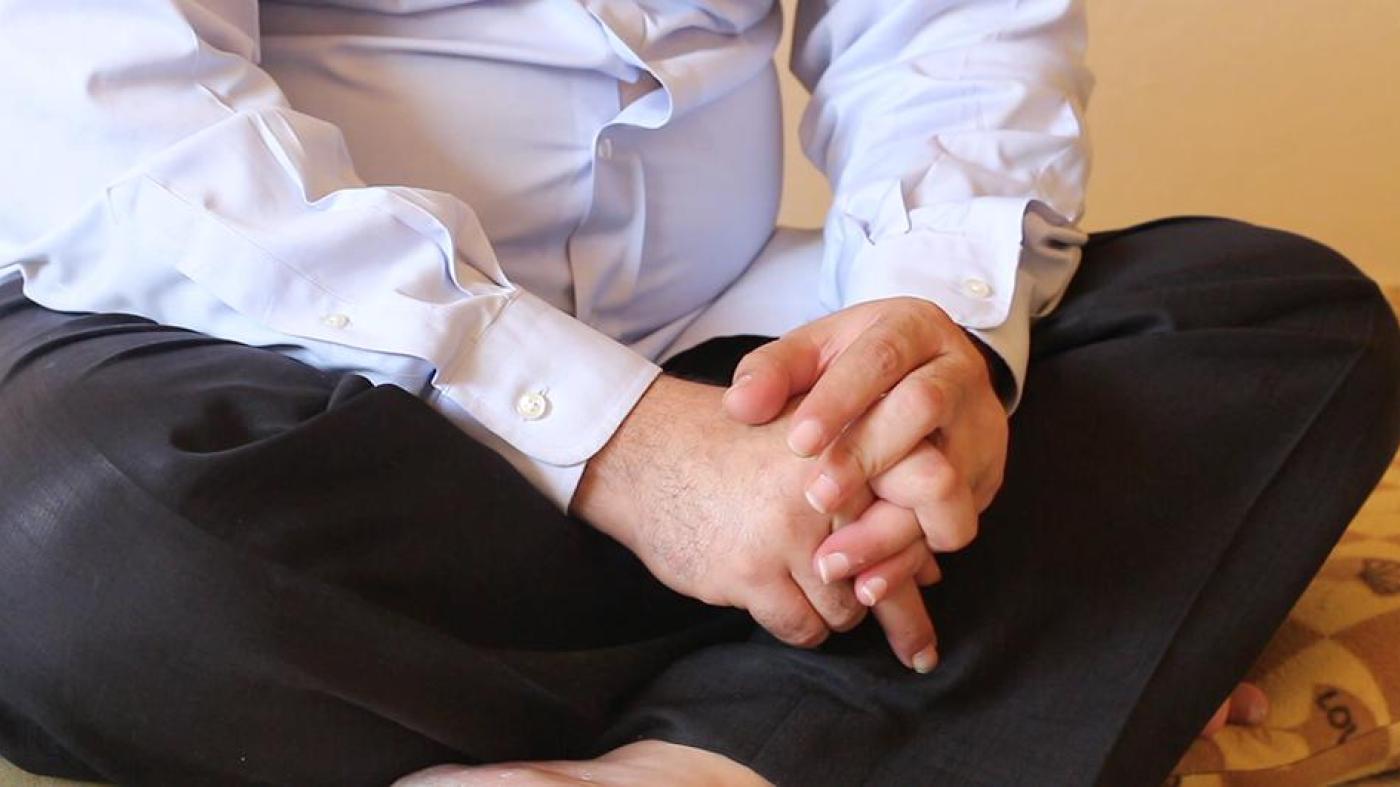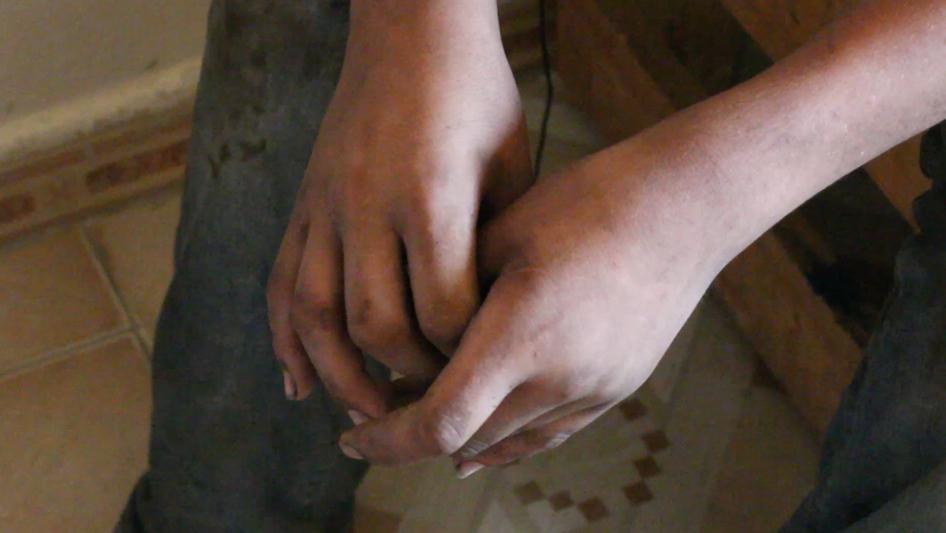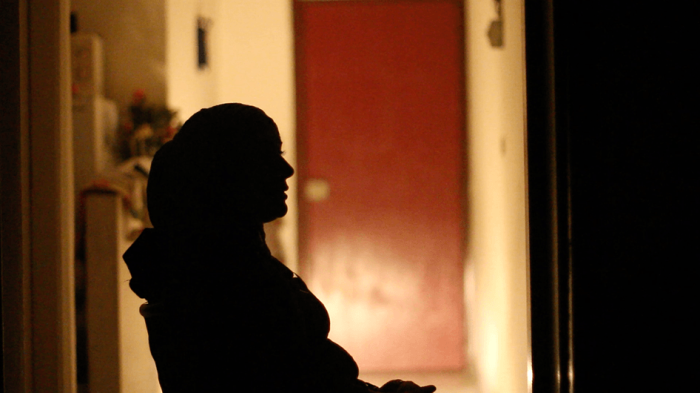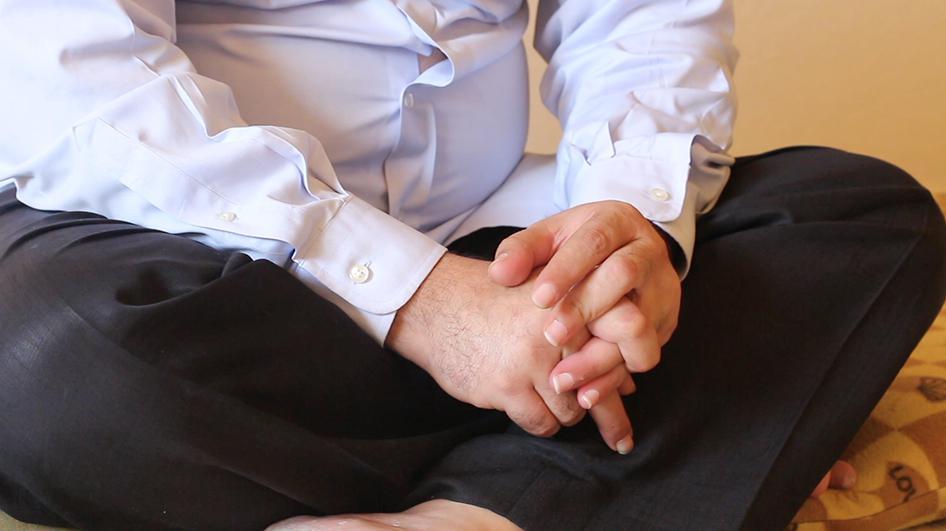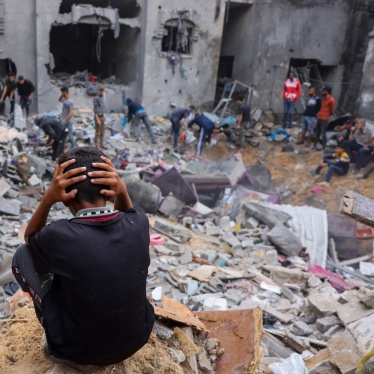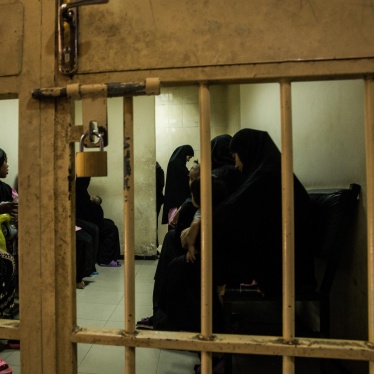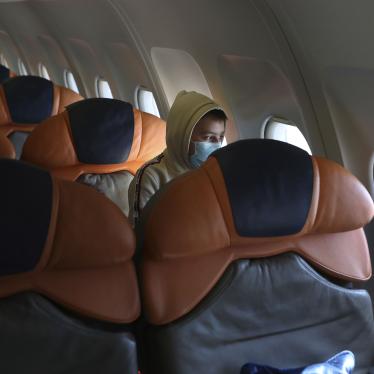It’s lunchtime in a small town near Tripoli, in northern Lebanon. Inside a cramped, dilapidated apartment Amira is making lunch for her husband and six kids. The meal is modest and won’t be enough to fill eight hungry stomachs. There are some tomatoes, a bit of stale bread, and a single egg mixed with some vegetables.
The apartment door swings open and Ali walks in. He looks exhausted, and with good reason. He’s halfway through his 12-hour shift at a local repair workshop, fixing up damaged cars. It’s a tough and physically demanding job with long hours and low pay – just US$16 a week. But Ali’s family needs every penny. They are refugees from Syria, and are struggling to make ends meet. He may only be 12 years old, but Ali is the family breadwinner.
Amira fusses around her young son, anxiously setting his plate down as soon as he comes in. He’s too tired to thank her properly or talk, and wolfs down his lunch in silence. Then he starts to tell his story.
Ali describes how his family fled shelling in their village near Homs in 2013. Before the war his father worked as a delivery truck driver, and life was comfortable. Ali (not his real name) and his five brothers and sisters all went to school, where Ali got exceptional marks. He loved school and was particularly good at English.
Now Ali works seven days a week to support his family in Lebanon, and school in Syria is a distant memory. He’s been working non-stop like this for two years now.
He’s covered in dirt from the workshop, with thick grime under his fingernails and grease smeared over his T-shirt and jeans. He seems resigned to his fate. “I work and I don’t go to school, what do you want me to say? It’s the way it is,” he sighs.
After lunch and a brief interview Ali is off again. He won’t return until after sunset.
Of course Ali’s father, Mahmoud (again, not his real name), would rather be working himself than relying on his young son’s income. He tried for many months to get work but couldn’t find anyone willing to hire him without a valid residency permit.
A new Human Rights Watch report finds that authorities in Lebanon are making it increasingly difficult for Syrian refugees to renew their residency permits, leaving scores of Syrians without legal status and vulnerable to abuse and exploitation. While adults without papers often cannot find work, many Lebanese employers are willing to hire refugee children because they are cheaper and easier to exploit than their parents, and unlikely to attract unwelcome attention from the authorities.
It’s clear that Ali’s parents feel anguish and a deep sense of shame that their son is supporting them. But they see no choice.
Rent for the family’s tiny apartment is US$200 per month, and they are five months in arrears. If Ali didn’t work, the family would be on the streets. Food is a constant worry. Amira tries to feed everyone twice a day, but toward the end of the month – when the small amount of money they get from the UN has run out -- the family usually eats only one meal a day. Mahmoud buys vegetables from a local shop at a discounted price, just before they start to go rotten. This is all they can afford. Buying fresh bread is out of the question.
“When Ali comes home from work he cries and says ‘I don’t want to work’,” says Mahmoud. “But what can I do? I just kiss him on his cheek and his hand and say be patient.”
Without a formal contract, Ali has no way to enforce his labor rights. One day at the workshop an iron rod fell on his head and cut his ear, badly injuring him. But Ali and his parents knew that going to hospital across town was not a good idea. “I almost fainted but I didn’t seek medical care,” Ali says. “There is a permanent checkpoint on the road and I couldn’t travel there because I don’t have a residency permit.” If they’d been stopped, the family could have been detained.
This fear of arrest also made it difficult for Mahmoud to find work. When they first arrived from Homs, Mahmoud spent months walking miles each day looking for work as a laborer or odd-job man – anything to support his family. But without legal status, he was always at risk of being stopped at a checkpoint and arrested. Today, he rarely leaves the house for this reason.
Mahmoud also suffers from diabetes and has limited vision. Yet he can’t afford all the medication he needs so he tries to stretch it out, only taking pills occasionally and not daily like he should.
“This is not the life of people, it is the life of animals,” he says.
Mahmoud’s family is just one of many whose lives are being made intolerable by the obstacles to renewing residency papers that the Lebanese authorities have put in place. Undocumented refugees are pushed underground, where those who fled war and persecution are subject to poverty, exploitation, low pay and, for women, sexual harassment as well.
They can’t report their complaints to the authorities. And many refugee kids, like Ali, are engaged in dangerous child labor rather than enrolled in school – risking injury while also being denied an education. If the Lebanese government eased its renewal regulations, it would significantly ease the plight of refugees in the country.
On top of the poverty trap and living under fear of arrest, for undocumented refugees in Lebanon there’s the indignity of changed circumstances to grapple with too.
In Homs, Mahmoud remembers, Ali used to get cleaned up in the evenings, change into pajamas and go to bed. Now, his son goes to sleep covered in the day’s oil and grime.
“In Syria, Ali loved to ride his bicycle and play soccer,” says Mahmoud. “He’d always be out laughing with his friends. He’d get spending money from us, and go to the store to buy snacks and fresh bananas.
“Here in Lebanon, he just works and cries.”
